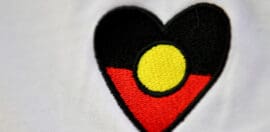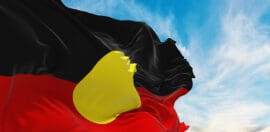Victoria to remove “archaic” public drunkenness law as Tanya Day inquest begins

26 August 2019 at 5:18 pm
A move by the Victorian government to decriminalise public drunkenness has been welcomed by Indigenous and human rights groups as an inquest into the death of Yorta Yorta woman, Tanya Day, gets underway.
On Thursday, the Victorian government announced it would decriminalise public drunkenness and replace it with a health-based response.
Victoria has lagged behind other states in removing the laws, and the state’s commitment leaves Queensland as the only other state to have not decriminalised the act.
It follows longstanding calls from community and human rights groups for the removal of the laws due to their dangerous and discriminatory impact.
Removing the law was recommended in the 1991 Royal Commission into Aboriginal Deaths in Custody, and more recently, has been advocated for in submissions to the Royal Commission into Victoria’s Mental Health System.
Trevor Pearce, the Victorian Aboriginal Community Controlled Health Organisation (VACCHO) acting CEO, said the repeal of the laws was welcome news for Aboriginal people in Victoria and Victorians everywhere.
“Police should only detain people who have committed criminal acts. Alcohol misuse is a public health issue, not a crime, and should be treated as such,” Pearce said.
“This out-dated law is unnecessarily punitive and racist in nature.”
The move comes as a public inquest into the death of Day gets underway at the Coroners Court of Victoria.
In December 2017, Day was arrested on a train for being drunk in public. CCTV footage revealed she knocked her head several times during a four-hour stay in a Castlemaine holding cell, and at one point fell off the ledge she was sleeping on.
The inquest into her death will consider if racism was a factor in how she died, a first for a Victorian coroner.
Since Day’s death, her family and the wider Aboriginal community have campaigned for changes to public drunkenness laws and an end to Aboriginal deaths in custody.
Ruth Barson, legal director at the Human Rights Law Centre, welcomed the government’s announcement as a testament to the ongoing commitment of Day’s family in seeking justice for their mother.
“The government is doing the right thing repealing these discriminatory laws and putting in place an Aboriginal-led, public health response. If somebody is too drunk, they should be taken home or somewhere safe, they should not be behind bars,” Barson said.
But Day’s family said in a statement that while they welcomed the news, they wanted to see words backed with quick action so that no other Aboriginal Victorian died in custody.
“This is welcome news, but it’s tinged with grief and sadness. In the end, it took the death of our mother for the government to repeal laws that should have been abolished 30 years ago when the recommendations of the Royal Commission into Aboriginal Deaths in custody were released,” the Day family said.
The government said it will set up an expert group to develop the new health-based response.
The expert group includes Helen Kennedy, VACCHO COO, Tony Nicholson, former executive director of the Brotherhood of St Laurence, Jack Blayney, former assistant commissioner of Victoria Police and Nerita Waight, CEO of the Victorian Aboriginal Legal Service.
Pearce commemorated Day, saying the repeal of the law was her legacy.
“This is a legacy that will ensure no one will lose their life in Victorian Police custody for the victimless crime of public drunkenness,” he said.







